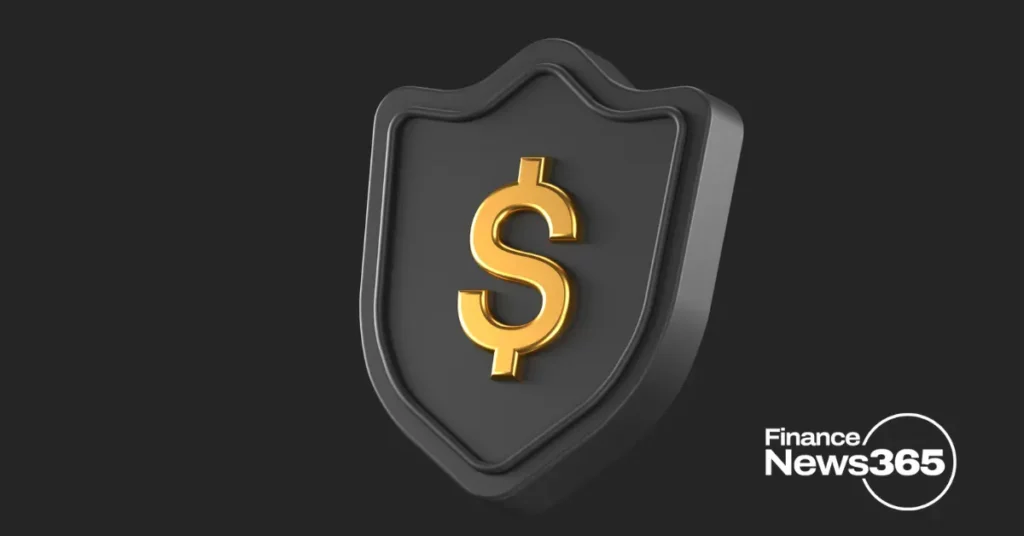
Navigating Risks of Unsecured Loans for Borrowers
Knowing the risks of unsecured loans can save you money, but are you prepared for the potential pitfalls that lie ahead?


Opting for a secured financing option can be a smart choice for you if you’re looking to borrow money effectively. By providing collateral, such as property or a vehicle, you reduce the lender’s risk, which often results in lower interest rates. This means you can access larger loan amounts under better terms. Additionally, making timely payments on a secured loan can enhance your credit score, reflecting responsible management of debt. However, it’s essential to understand that failure to repay can result in loss of the collateral. Exploring the various types of secured loans can help you find the right fit for your financial goals.

Secured loans are like a safety net for both borrowers and lenders, as they involve collateral to back the loan. This collateral can be anything of value, such as property or savings accounts, which provides a level of security that unsecured loans do not.
When you consider different loan types, secured loans often come with lower interest rates because lenders face less risk. They know they can reclaim the collateral if you fail to repay the loan.
As a borrower, you have specific responsibilities when taking out a secured loan. You must guarantee the collateral you provide is worth the loan amount and that it remains in good condition.
Additionally, you’ll need to make timely payments to avoid defaulting, which could lead to losing your collateral. Understanding these responsibilities is vital, as failing to meet them can have serious consequences.
Why should you consider secured financing? Secured loans offer several advantages that can make them a smart choice for your financial needs. One major benefit is the potential for lower interest rates compared to unsecured loans. Since these loans require collateral, lenders view them as less risky, which often translates to better loan terms for you.
Collateral types can vary widely, from real estate and vehicles to savings accounts and valuable personal property. This variety allows you to select an asset that you feel comfortable putting on the line, which can ease the borrowing process.
Additionally, because the collateral reduces the lender’s risk, you might qualify for larger loan amounts, giving you more flexibility in your financing options.
Secured financing can also boost your credit score if you make timely payments, as it demonstrates your ability to manage debt responsibly. Overall, these benefits combine to create a compelling case for opting for secured financing when you need funds, whether for purchasing a home, consolidating debt, or investing in a business opportunity.
Choosing the right type of loan can greatly impact your financial journey, and knowing when to opt for secured loans is essential. Secured loans are often a smart choice if you’re looking for larger amounts of money or more favorable terms. If you have valuable assets, like a home or a car, these can be leveraged to secure the loan.
When considering secured loan types, think about your financial needs and the potential risks involved. You should also evaluate your assets and their valuation. Lenders will assess the value of your collateral, which can influence the amount you’re eligible to borrow and the interest rates offered.
If your credit history isn’t perfect but you have significant assets, secured loans can provide you with an opportunity to access funds. It’s also wise to choose secured loans when you have a clear repayment plan. This way, you’ll minimize the risks of losing your asset while benefiting from lower rates.
Always remember to weigh your options carefully, ensuring that the benefits of a secured loan align with your financial goals and capabilities.
When evaluating financing options, comparing interest rates is essential for making an informed decision. You should start by analyzing interest rate trends, as they can greatly impact your overall borrowing costs.
Employ loan comparison strategies that look beyond just the interest rate itself; consider lender fee structures, as these can vary widely and affect your total repayment amount.
Keep in mind the market fluctuation effects on interest rates, which can shift based on economic conditions. It’s vital to understand the long-term borrowing implications of your choices.
While fixed rate advantages offer stability by locking in your rate for the duration of the loan, variable rate risks could lead to fluctuating payments that may become unmanageable.
Additionally, a borrower creditworthiness analysis is necessary, as it determines the interest rates lenders will offer you. Strong credit may allow you to secure lower rates, while poor credit can lead to higher costs.
Ultimately, weighing these factors carefully will help you make a choice that aligns with your financial situation and future goals, ensuring that you select a financing option that’s not just appealing but also sustainable in the long run.
Your credit score plays a significant role in determining the financing options available to you. When you apply for a secured loan, lenders evaluate your credit score to assess your creditworthiness. A higher score often leads to better loan approval chances and more favorable terms.
One key factor influencing your credit score is credit utilization, which measures how much of your available credit you’re using. Ideally, keeping your credit utilization below 30% is advisable, as higher percentages can negatively impact your score.
If your score is high, you may qualify for lower interest rates on secured loans, saving you money in the long run. Conversely, a lower score can result in limited financing options and higher rates. This disparity underscores the importance of maintaining a healthy credit score.
Regularly checking your credit report for errors and making timely payments can help improve your score over time. By understanding the impact of your credit score on your secured financing options, you can take proactive steps to enhance your financial profile, increasing your chances of obtaining the loan terms you desire.
This awareness empowers you to make informed decisions about your financial future.
When you engage in secured financing, you’re putting your assets at risk if you can’t meet your repayment obligations.
Defaulting on a loan can lead to serious consequences, including the loss of the property you used as collateral.
As a result, it’s essential to understand how to protect your assets and the implications of failing to uphold your financial commitments.
Secured financing offers a pathway to access funds while leveraging valuable assets, but it comes with inherent risks, particularly the potential loss of those assets. When you take out a secured loan, you’re using secured collateral, such as your home or car, to back the loan. This arrangement often improves your loan eligibility, as lenders see reduced risk when they’ve collateral to claim in case of default.
However, if you fail to meet the repayment terms, you could lose the asset you pledged. Understanding secured financing means recognizing that while it can provide immediate funding, your collateral is at stake. This risk is vital to take into account, especially if the asset holds significant personal or financial value.
The lender may have the right to repossess your collateral, which can lead to severe consequences. Thus, it’s important to evaluate your financial situation before committing to a secured loan. Make sure you’re comfortable with the terms and can meet repayment obligations.
Always weigh the benefits of access to funds against the risk of losing an important asset.
Facing the consequences of defaulting on a secured loan can be intimidating, especially if you’ve pledged valuable assets as collateral. The financial repercussions of default scenarios can be severe, impacting your overall financial stability.
As a borrower, you have responsibilities to meet the loan terms; failing to do so may trigger creditor actions aimed at recovering their losses.
One major consequence is asset loss, as creditors can seize the collateral you pledged. This process often involves loan recovery procedures, where the creditor assesses the asset valuation to determine its worth.
Additionally, a default will negatively affect your credit report, making it harder to secure future loans or credit.
It’s essential to understand the legal consequences of defaulting, which may include lawsuits or bankruptcy proceedings.
To avoid these outcomes, explore your repayment options early if you’re struggling. Engaging in proactive financial planning can help you manage your obligations and avoid default.
Protecting your assets is essential, especially when you’ve taken out secured loans. When you use collateral to secure financing, you risk losing that asset if you default. To safeguard your investments, it’s vital to implement effective asset protection strategies.
Start by evaluating the value of your collateral and ensuring it’s adequately insured. This way, if unforeseen circumstances arise, you won’t face complete financial devastation.
Additionally, consider diversifying your assets. By spreading your investments across different types of property, you can reduce the overall risk of loss. It’s also wise to keep your financial and legal documents organized and accessible, as this can help in managing your assets effectively.
Moreover, employing collateral management tips can enhance your asset protection. Regularly monitor the value of your secured assets and stay updated on market trends. If necessary, adjust your collateral to match the current valuations.
This proactive approach enables you to respond to changes swiftly, minimizing potential losses. By focusing on these strategies, you’ll be better equipped to protect your assets and maintain your financial stability amidst the uncertainties that come with borrowing.
When considering secured loans, you’ll find options like home equity loans and auto title loans that can meet your financial needs.
A home equity loan allows you to borrow against the value of your home, while an auto title loan uses your vehicle as collateral.
Understanding these types of secured loans can help you make informed decisions about your financing options.
Home equity loans offer a powerful way to tap into the wealth tied up in your property. By borrowing against your home equity, you can access funds for various needs, from home improvements to debt consolidation.
To qualify for a home equity loan, you’ll need to meet specific loan qualifications, which typically include a good credit score and stable income. Your borrowing limits depend on the amount of equity you have in your home, determined through an equity assessment.
Interest structures can vary, so it’s important to grasp whether you’ll be getting a fixed or variable rate. Repayment terms usually range from five to thirty years, giving you flexibility.
However, it’s vital to take into account tax implications, as the interest on home equity loans may be tax-deductible in some cases.
Market fluctuations can affect your home’s value, impacting your equity. Be aware of lender requirements, as they may differ between institutions.
Additionally, refinancing options might be available if you want to adjust your loan terms later. Overall, home equity loans can be a practical financing solution if you navigate these factors wisely.
If you’re exploring secured financing options, auto title loans can be an appealing choice for quick cash. These loans allow you to use your vehicle as collateral, which can often result in lower interest rates compared to unsecured loans.
One of the key auto title benefits is the speed of the loan application process. Typically, you can receive funds within a day or even hours, making it ideal for urgent financial needs.
To apply for an auto title loan, you’ll need to provide your vehicle’s title, proof of identity, and sometimes proof of income. The lender will assess the vehicle’s value to determine the loan amount you can receive. Since these loans are secured by your vehicle, you may have a better chance of approval, even if you have a less-than-perfect credit history.
However, it’s important to remember that failing to repay the loan could result in losing your vehicle. As a result, before proceeding, make sure you understand the terms and conditions thoroughly.
Unsecured loans are a popular choice for many borrowers seeking quick access to funds without the need for collateral. These loans don’t require you to put up assets like your home or car to secure the amount borrowed. Instead, lenders assess your creditworthiness based on your credit score, income, and financial history. Common unsecured loan types include personal loans, student loans, and credit cards.
One of the main unsecured loan advantages is the speed of approval. Since no collateral is involved, lenders can process applications faster, allowing you to receive funds quickly when you need them most. Additionally, unsecured loans often have fixed interest rates, making it easier to budget your monthly payments.
However, it’s crucial to reflect that unsecured loans typically come with higher interest rates than secured loans due to the increased risk for lenders. This means that while you gain access to cash without collateral, you might end up paying more in interest over time.
Understanding these aspects can help you make informed decisions about whether an unsecured loan fits your financial needs and goals.
Read Also: Secure vs unsecured loan
To effectively evaluate your financial situation, start by evaluating your current debts to understand what you owe and to whom.
Next, analyze your income stability to determine if it’s reliable enough to support new financing options.
Evaluating your current debts is an essential step in examining your financial situation. Start by listing all your debts, including credit cards, loans, and any other obligations. Understanding the total amount owed and the interest rates associated with each debt will help you assess your financial burden.
This clarity enables you to explore effective debt management strategies tailored to your needs.
Consider whether debt consolidation options might be beneficial for you. Consolidating multiple debts into a single loan can simplify your payments and often lower your interest rate, making it easier to manage your overall debt. By focusing on one payment instead of several, you can reduce the stress associated with juggling multiple creditors.
Additionally, evaluate the terms of your existing debts. Are there opportunities to negotiate lower interest rates or longer repayment periods?
Taking the time to assess your current debts allows you to make informed decisions about your financial future. By employing effective strategies, you can work towards reducing your debt load and improving your overall financial health.
Stability in your income is essential for maintaining a healthy financial situation. When reviewing your financial status, it’s imperative to analyze your income sources. Regular income from employment, side gigs, or investments forms the backbone of your financial health. A steady income allows you to manage your expenses, save for emergencies, and plan for future needs.
Next, you should engage in financial forecasting to predict your future income. This involves estimating your earnings based on current income sources and potential changes, like promotions or additional jobs. Understanding trends in your income can help you prepare for fluctuations, allowing you to make informed decisions about secured financing options.
Additionally, consider the stability of each income source. For instance, a full-time job may provide more security than freelance work, which can be unpredictable. By evaluating your income reliability, you can better determine how much you can afford in monthly payments and how much risk you’re willing to take on.
Ultimately, a thorough income stability analysis not only strengthens your financial foundation but also positions you for better financing options in the future.
Understanding your income stability sets the stage for defining your future financial goals. By examining your current financial situation, you can identify where you stand and what you need to achieve.
Start by evaluating your monthly income and expenses; this will help you determine how much you can allocate toward savings and investments.
A well-structured savings strategy is essential for building a financial cushion. You should aim to set aside a portion of your income regularly, which won’t only help you manage unexpected expenses but also pave the way for future investments.
When it comes to investment planning, consider what your long-term goals are—whether it’s buying a home, funding education, or preparing for retirement.
Diversifying your investments can mitigate risk and enhance potential returns, so explore various options such as stocks, bonds, or mutual funds.
Also, stay informed about market trends and economic conditions that may affect your investment choices.
When it comes to choosing secured financing options, you need to weigh your choices carefully. Understanding the different loan types available is vital, as each serves distinct purposes and comes with varying terms. You might choose a home equity loan for large expenses, or an auto loan specifically for purchasing a vehicle.
After identifying the right loan type, it’s important to take into account your repayment strategies. Determine how you’ll manage your monthly payments while balancing your other financial obligations. Assess your budget to guarantee that you can comfortably meet these payments without straining your finances.
Furthermore, think about the interest rates associated with each option. Lower rates typically mean lower overall costs, but they may come with stricter qualification criteria.
In conclusion, opting for a secured financing option can provide numerous advantages, including lower interest rates and easier approval processes. However, it is crucial to carefully evaluate your financial situation and understand the risks involved, such as the potential loss of collateral. By weighing these factors and considering your personal needs, you can make an informed decision about whether a secured loan is the right choice for you. Always choose wisely to guarantee your financial stability in the long run.

Knowing the risks of unsecured loans can save you money, but are you prepared for the potential pitfalls that lie ahead?

How do secured and unsecured financing options differ, and which one could be the key to unlocking your financial potential? Discover the benefits now.

How do loans influence your credit score? Discover the critical factors that can make or break your financial future.

You might be surprised by the differences between secured and unsecured financing—discover key tips that can shape your financial future.